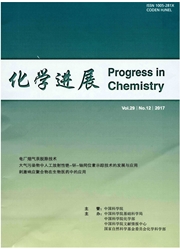

 中文摘要:
中文摘要:
随着人类基因组计划的完成和功能基因研究的深入,基因诊断已成为分子生物学和生物医学的重要研究领域。DNA生物传感器作为一种利用核酸碱基配对原则进行识别,能对基因片段实现持续、快速、灵敏和选择性检测的新方法,近年来发展非常迅速。纳米材料由于具有独特物理化学性质、良好的生物相容性、优越的机械性能及表面易于生物功能化等特点,被广泛应用到生物分析之中。各种各样组成、尺寸、维度及形状的纳米材料如量子点、贵金属纳米材料、碳纳米材料等被可控地修饰上不同的生物分子,用于发展特殊性质的纳米探针,构建DNA生物传感器,实现对DNA片段高灵敏及高特异性的检测。
 英文摘要:
英文摘要:
The accomplishment of the Human Genome Project and the progress in research of the functional genomics make gene diagnoses a hot spot in the areas of molecular biology and biomedicine. DNA biosensors, based on the bases pairing, can continuously, fast, sensitively detect the specific gene sequence, which have developed quickly in recent years. Nanoparticles are intensely studied in bioanalysis, owing to their unique physical and chemical properties, excellent biocompatibility, stable mechanical and facilitated modification properties. Various compositions, sizes, dimensions and shapes of nanomaterials such as quantum dots, noble metal nanoparticles, carbon nanomaterials are controllably tailored to couple different biomolecules in order to develop nanoprobes with desired properties for DNA biosensing. These biosensing devices can be employed for detection of DNA sequence with high sensitivity and selectivity.
 同期刊论文项目
同期刊论文项目
 同项目期刊论文
同项目期刊论文
 Label-free and ultrasensitive microRNA detection based on novel molecular beacon binding readout and
Label-free and ultrasensitive microRNA detection based on novel molecular beacon binding readout and A Facile Graphene Nanosheets-based Electrochemical Sensor for Sensitive Detection of Honokiol in Tra
A Facile Graphene Nanosheets-based Electrochemical Sensor for Sensitive Detection of Honokiol in Tra 期刊信息
期刊信息
